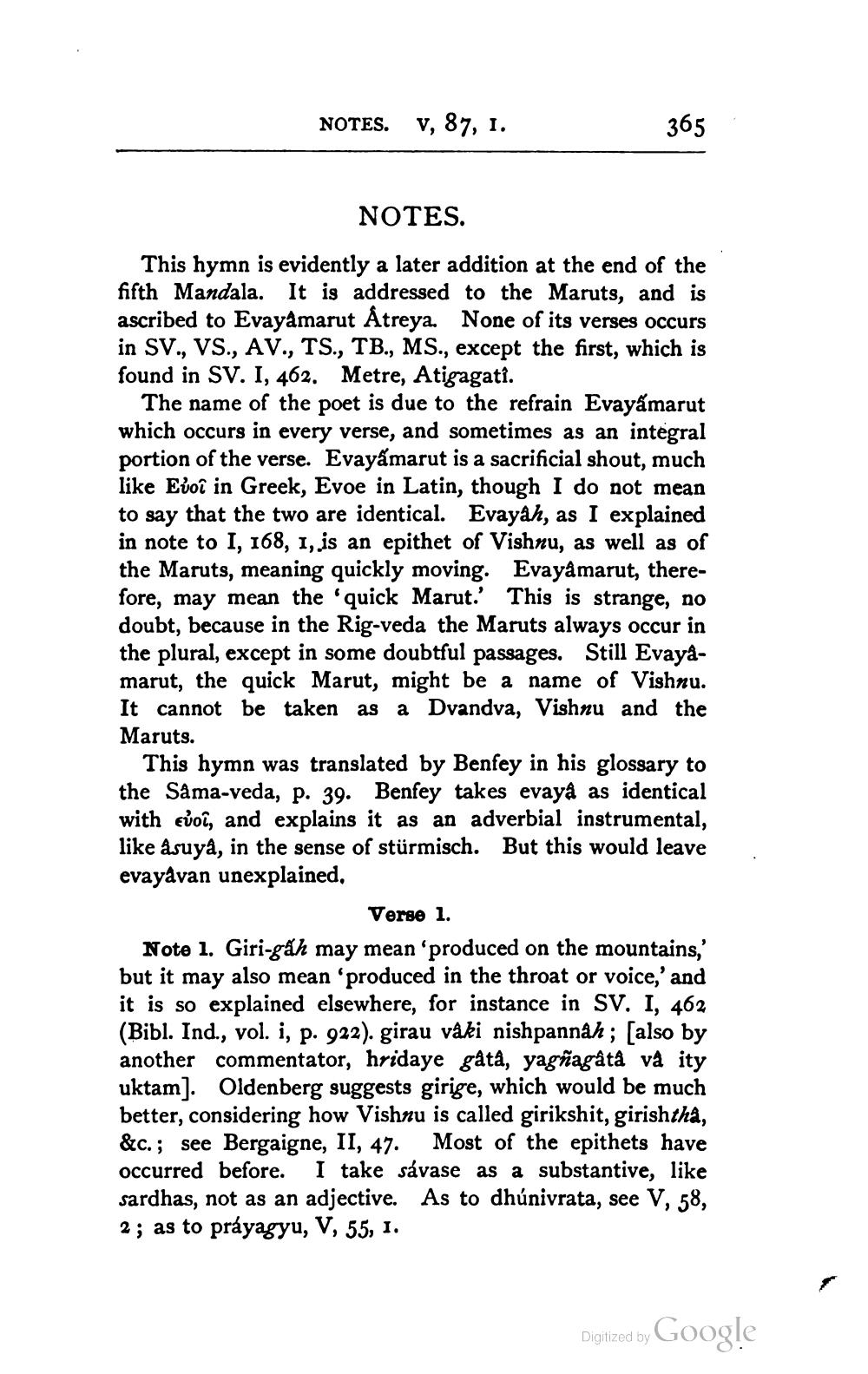________________
NOTES.
V, 87, 1.
365
NOTES.
This hymn is evidently a later addition at the end of the fifth Mandala. It is addressed to the Maruts, and is ascribed to Evayamarut Åtreya. None of its verses occurs in SV., VS., AV., TS., TB., MS., except the first, which is found in SV. I, 462. Metre, Atigagati.
The name of the poet is due to the refrain Evayámarut which occurs in every verse, and sometimes as an integral portion of the verse. Evayámarut is a sacrificial shout, much like Evoi in Greek, Evoe in Latin, though I do not mean to say that the two are identical. Evayah, as I explained in note to I, 168, 1, is an epithet of Vishnu, as well as of the Maruts, meaning quickly moving. Evayâmarut, therefore, may mean the 'quick Marut.' This is strange, no doubt, because in the Rig-veda the Maruts always occur in the plural, except in some doubtful passages. Still Evayamarut, the quick Marut, might be a name of Vishnu. It cannot be taken as a Dvandva, Vishnu and the Maruts.
This hymn was translated by Benfey in his glossary to the Sama-veda, p. 39. Benfey takes evaya as identical with evoi, and explains it as an adverbial instrumental, like asuya, in the sense of stürmisch. But this would leave evayavan unexplained.
Verse 1. Note 1. Giri-gáh may mean produced on the mountains, but it may also mean 'produced in the throat or voice,' and it is so explained elsewhere, for instance in SV. I, 462 (Bibl. Ind., vol. I, p. 922). girau vâki nishpannah; [also by another commentator, hridaye gåtå, yagñagåtå và ity uktam). Oldenberg suggests girige, which would be much better, considering how Vishnu is called girikshit, girishtha, &c.; see Bergaigne, II, 47. Most of the epithets have occurred before. I take sávase as a substantive, like sardhas, not as an adjective. As to dhunivrata, see V, 58, 2; as to prayagyu, V, 55, 1.
Digitized by
Digized by Google




